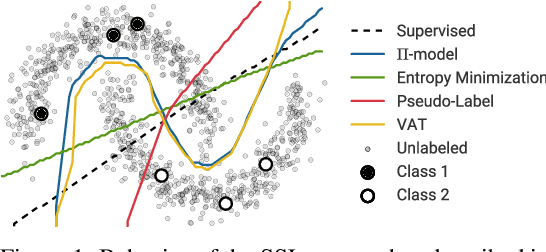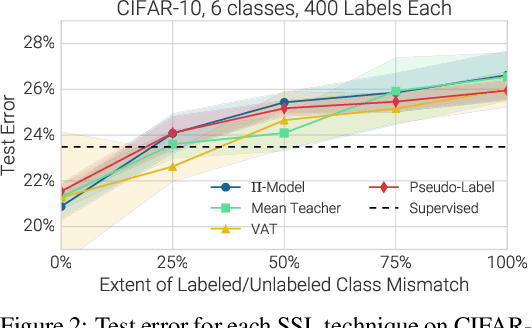Realistic Evaluation of Deep Semi-Supervised Learning Algorithms
Paper and Code
Oct 26, 2018



Semi-supervised learning (SSL) provides a powerful framework for leveraging unlabeled data when labels are limited or expensive to obtain. SSL algorithms based on deep neural networks have recently proven successful on standard benchmark tasks. However, we argue that these benchmarks fail to address many issues that these algorithms would face in real-world applications. After creating a unified reimplementation of various widely-used SSL techniques, we test them in a suite of experiments designed to address these issues. We find that the performance of simple baselines which do not use unlabeled data is often underreported, that SSL methods differ in sensitivity to the amount of labeled and unlabeled data, and that performance can degrade substantially when the unlabeled dataset contains out-of-class examples. To help guide SSL research towards real-world applicability, we make our unified reimplemention and evaluation platform publicly available.
 Add to Chrome
Add to Chrome Add to Firefox
Add to Firefox Add to Edge
Add to Edge